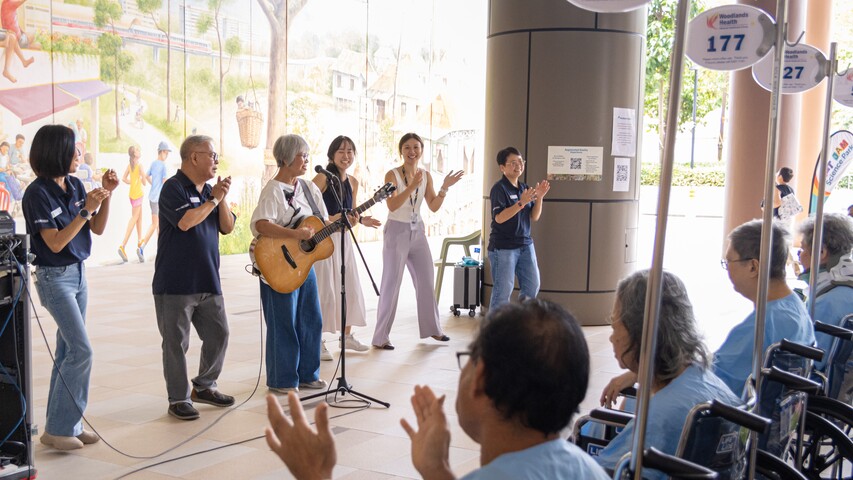Music has always been an essential part of musician and music educator Melissa Ong’s life.
Coming from a family of music lovers and practitioners, Melissa was always surrounded by different forms of music at home. Her grandmother sang Cantonese opera, her father listened to 1980s pop, her mother taught the piano, and her aunt hummed along to just about anything. Thus, it was only natural for her to ease into the musical landscape.
Melissa’s impressive voyage in music began when she picked up the piano and violin at the age of three. Later at the age of nine, she followed in the footsteps of her great-grandfather – who was a violinist, yangqin player, and conductor of a Chinese orchestra – and was enrolled in her primary school’s Chinese orchestra for more musical exposure.
Little did she know that her early experiences would lay the foundation for the impressive career she would later have.
To date, she has had rare opportunities to perform for then His Royal Highness Prince Charles and former Singapore presidents Dr. Tony Tan and S. R. Nathan. She has also led orchestras such as the London Graduate Orchestra, Singapore Lyric Opera, and the University of London Symphony Orchestra as their principal cellist.
As an educator, Melissa was appointed the cello tutor for the National University of Singapore Symphony Orchestra from 2017 and has been a frequent collaborator with the Royal College of Music (RCM) Sparks, where she has conducted in-school workshops for students.
In an interview with Hear65, Melissa reflects on her journey as a musician and educator over the years, shares her thoughts on the music landscape in Singapore, and reveals effective teaching strategies for nurturing and inspiring students.
Your educational journey in music, from the completion of the Young Artist Programme in 2010 to your current pursuit of a Doctorate in Music Education, is truly remarkable. What drives you to consistently stay in touch with music?
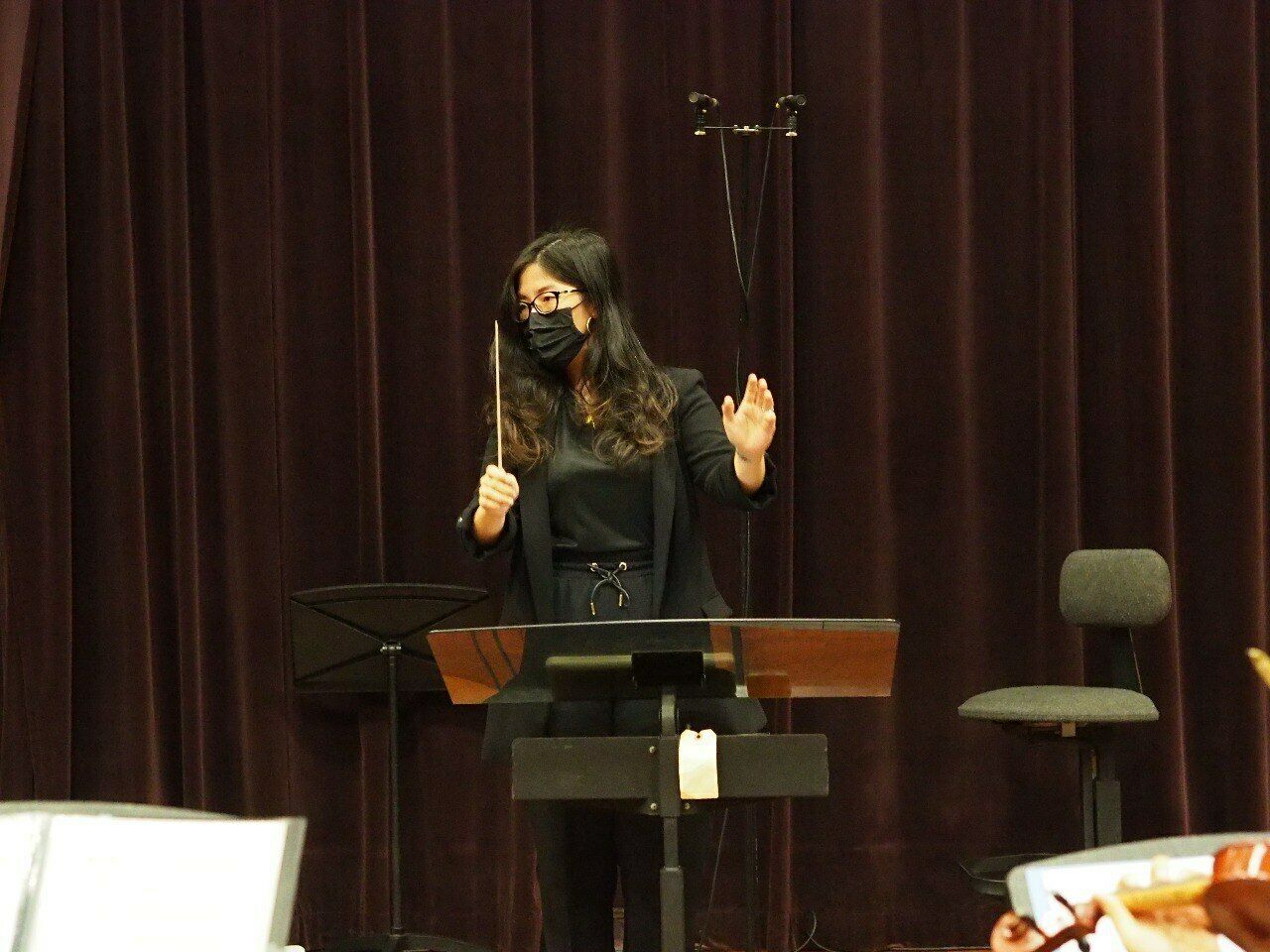
One of the things I love about music is that there are so many different ways to be involved in music. I learn so much about music and have a lot of fun by engaging in various musical disciplines, such as conducting, music production, playing the electric bass in a band, and filming music videos. Over the years, I’ve come to realise that these are all interconnected through certain core skills, and these experiences have made me a more compassionate and versatile musician. However, performing and music education remain closest to my heart, and give me the highest sense of purpose and fulfilment.
“Over the years, I’ve come to realise that these [musical disciplines] are all interconnected through certain core skills, and these experiences have made me a more compassionate and versatile musician.”
So far, you have led orchestras such as the London Graduate Orchestra, Singapore Lyric Opera, and the University of London Symphony Orchestra as the principal cellist. How have these experiences contributed to your growth as a musician and educator?
I’ve learned a lot about leadership through these experiences. For example, a key aspect of being an effective leader is the ability to communicate clearly through my playing, body language, and dialogue, since I serve as a bridge between the conductor, orchestra, and the rest of the section. Leading these different orchestras has also helped me realise that being sincere in getting to know the people we work with is imperative for being adaptable to different working styles. I take these lessons forward to advocate for the importance of
music education, and help my students develop their communication and collaboration skills.
As an advocate for chamber music, you have performed using modern and period instruments with various groups. How do you balance the demands of the different musical genres?
I imagine these musical genres as different ways of seeing and living in the world. It’s a little like how I suppose an actor feels as they take on different roles. Every musical genre (including fusions!) has its own unique character, and it’s so much fun to wear different hats and immerse yourself in different genres. I find that in doing so, I gain a greater appreciation for and understanding of other cultures and genres, and of myself too.
In your career as a musician, you had the rare opportunity of performing for the then His Royal Highness Prince Charles and former presidents Dr. Tony Tan and S R Nathan. Could you walk us through how you prepared for such high-profile performances?
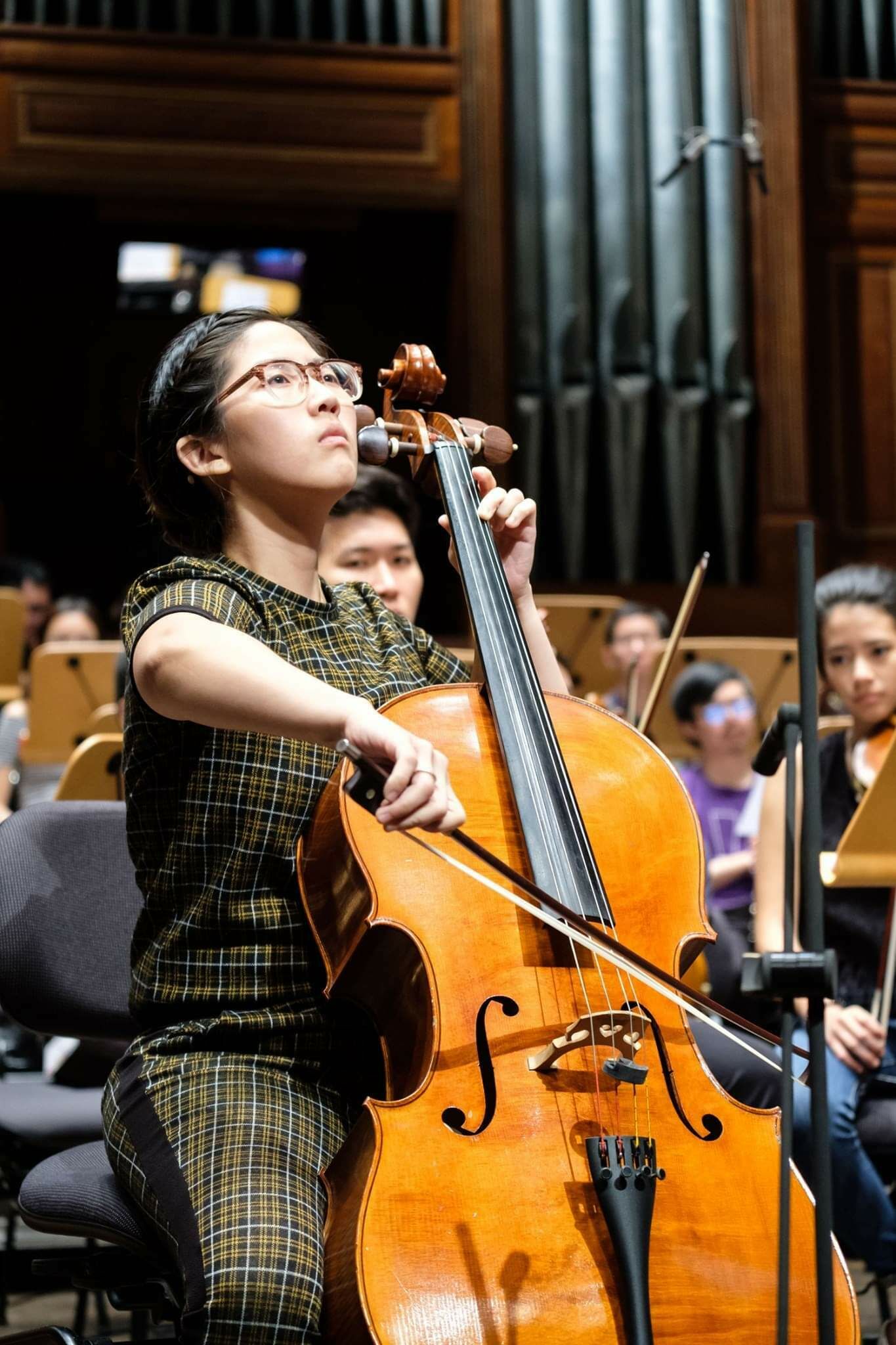
I used to struggle quite a fair bit with music performance anxiety, which could be more intense for high-profile or high-stakes performances. One practice strategy that I found helpful was simulating things that could go wrong during the event. For example, as I practice, I would imagine when an audience member might suddenly cough, what I would do if one of my strings were to suddenly snap, or if the lights were to suddenly go out. These helped me to feel prepared for the performance in its entirety. At the end of the day though, unexpected things can still happen, and I always try to be calm so that I can adapt well to these changes. Having a light breakfast and a small fruit smoothie helps in this regard as these help balance my energy throughout the day.
“At the end of the day though, unexpected things can still happen, and I always try to be calm so that I can adapt well to these changes.”
As an educator, what are your thoughts on the current state of music education in Singapore? Personally, do you think the music landscape in Singapore could thrive in the future?
I think music education in Singapore has come a long way. Teachers have broadened and deepened their knowledge and application of music pedagogies, and I think lessening the focus on excelling in music competitions and examinations has also been a step in the right direction. Music learners should be primarily motivated by an innate enjoyment of music rather than a desire to excel in a single event, as this intrinsic motivation would encourage them to be lifelong learners.
It’s also encouraging that there is increasing recognition of the importance of music education as a profession. There is greater awareness that good practitioners do not necessarily make good educators; being a good music educator requires expertise in both music and teaching, as well as having the heart for one’s students.
Music education is crucial to the sustainability and flourishing of Singapore’s music landscape in the future. Although we have made good progress, there is still much more work to be done in making our music landscape more vibrant and inclusive. To do this, we need more accessible performing venues and opportunities, as well as avenues for all people to be actively involved in music-making. Music needs to be owned and driven by the community.
“Music learners should be primarily motivated by an innate enjoyment of music rather than a desire to excel in a single event.”
What are some teaching strategies that you have found to be effective in nurturing and inspiring your students?
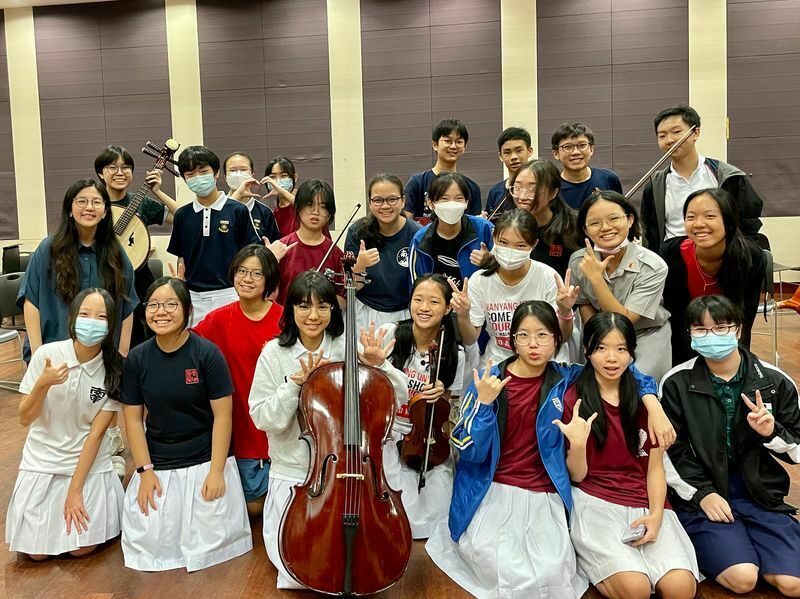
I’ve found that playing for my students and playing with them is very important. Through these, I’m able to role model good playing habits, and my students also experience music-making as a social activity. Being playful with my students is also very important as it encourages them to take risks, expand their creativity, think critically, challenge themselves, and ultimately enjoy making music.
It’s also important to help students experience music-making as a process that involves more than just humans; it involves us interacting with the musical instrument (or software/app), the air, the floor, the space, the reverberation of the sounds, the light, the music score, others who might be in the same space as us, etc. This helps students experience how music is not just something they learn in lessons or listen on their phones or in public spaces; it is a way for them to live in the world, and helps them to be more compassionate and concerned global citizens.
“Being playful with my students is also very important as it encourages them to take risks, expand their creativity, think critically, challenge themselves, and ultimately enjoy making music.”
What advice would you offer to aspiring musicians in Singapore?
Don’t lose sight of why you want to pursue music as a career. Some of you may be concerned about the practicality of such a profession. While I don’t believe in the saying, “Where there’s a will, there’s a way”, I do believe that where there’s a strong enough will, and when smart decisions are made, there are multiple ways. Listen to what society says, and find ways around the parts that don’t work to your advantage. Stand firm.
“Listen to what society says, and find ways around the parts that don’t work to your advantage. Stand firm.”
What are some goals that you’ve set for yourself as a musician and educator this year?
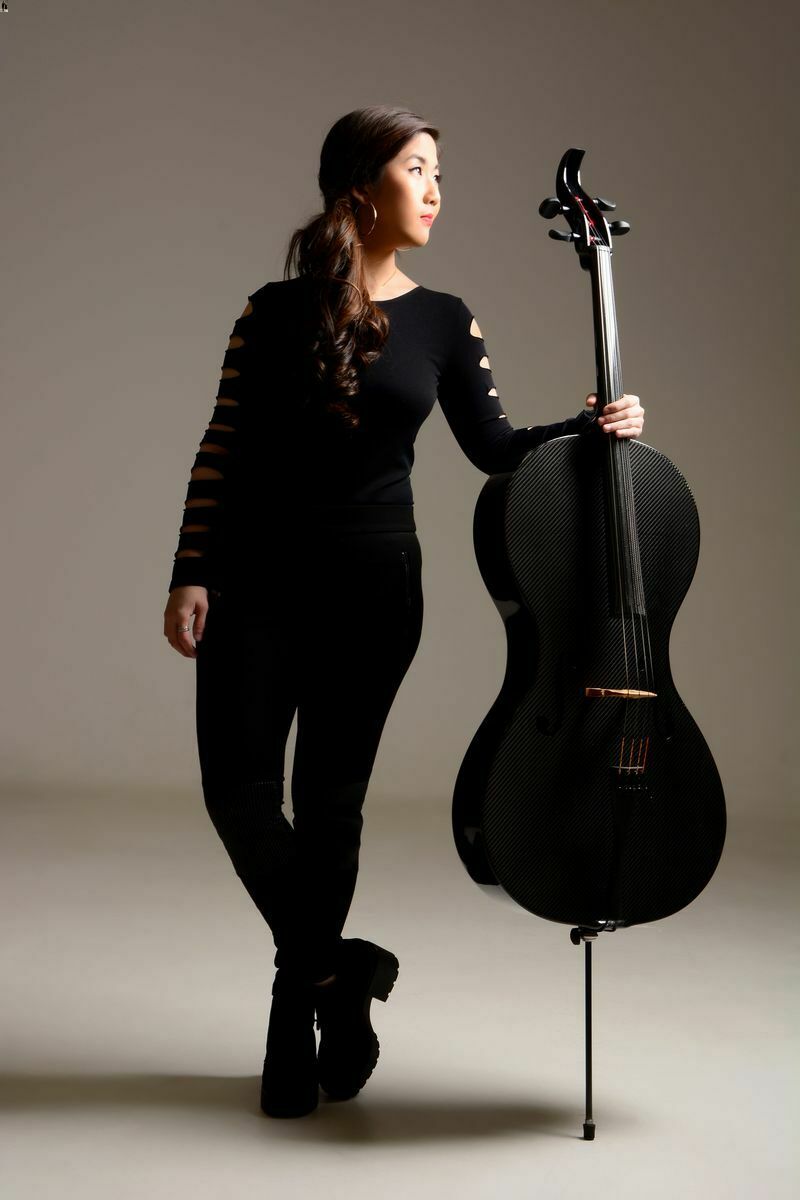
2024 is a great year for Broadway lovers in Singapore, and I’m excited for some plans in the works for me to perform as a cellist for some shows. I’ve been performing in string quartets and piano trios, but it’s been a while since I performed as a string trio so I’m hoping to create some opportunities to get a group together this year. I’d also like to set aside more time for my electric guitars and basses; it’s been a while since I last jammed with a band.
Over the past few years, I have been focusing on classroom teaching, individual cello lessons, chamber group coaching, cello sectionals, and workshops for teachers. While I continue to work on my doctorate in music education, I also hope to find opportunities to conduct outreach workshops, such as the pre-concert workshops I previously conducted for schools, as well as the BBC Proms Family Chorus and Orchestra. Last year, I also thoroughly enjoyed producing educational resources for the Singapore Symphony Orchestra, and hope to continue exploring this area! I’ve also recently received a few requests for music product reviews, and hope to further explore social media as a platform for music education.

